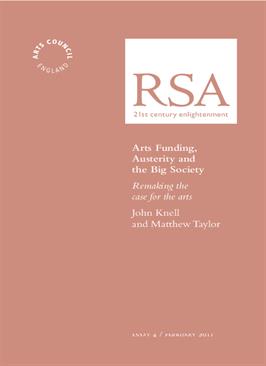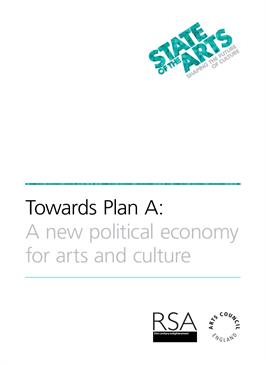This is the fourth in the RSA's series of pamphlets on 21st century enlightenment. It aims to deepen understanding and generate public discussion as well as enrich the Society’s thinking about its own role in fostering local networks in the name of progress.
The pamphlet concludes that the sector urgently needs to develop a stronger evidence base demonstrating the impact of the arts in fields such as mental health, education and civic engagement.
'Arts Funding, Austerity and the Big Society' is published to coincide with the second State of the Arts conference. In developing a more transparent debate about how to best allocate public funds, it recommends strengthening the case for both artistic and public good instrumentalism.
This will require:
-
More precise definitions of artistic excellence
-
New approaches to engagement
-
Strengthening the networks that link elite arts producers to amateurs and fans
-
A better account of the relationship between artistic participation and individual and social outcomes
pdf 229.9 KB
Contributors


Related reports
-
Creative Gatherings Guide
Download our resource which outlines the key elements of Creative Gatherings and offers guidance on how to put one together; especially relevant to anyone with a professional or voluntary interest in civic action.
-
Arts and Social Change Evaluation
The Arts and Social Change Evaluation closes this strand of the 3 year Citizen Power Peterborough programme of work across the city.
-
Towards Plan A: A new political economy for arts and culture
This report publishes the findings of the ‘Towards Plan A: a new political economy for arts and culture?’ seminar series. The seminars brought together representatives from business and finance, the government, local authorities and Local Enterprise Partnerships, and the arts and cultural sector to explore ideas that can shape a new political economy for arts and culture in England.




Be the first to write a comment
Comments
Please login to post a comment or reply
Don't have an account? Click here to register.